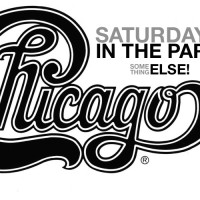Like so many goodbyes, nobody knew “Better” would represent Bill Champlin’s last released original recording with Chicago. It was just another blue-eyed soul number from a modern master of the genre, even if – again, this is 2006’s Chicago XXX – it was sadly over processed.
We now know, however, that he’d be unceremoniously ousted some three years later. That tends to make Champlin’s lyric, co-written with Chas “What Kind of Man Would I Be” Sandford, feel sadly prophetic: “Now I feel like I’m swimming upstream, when the current is running so strong – I’m a fish out of water.”
Champlin had been lead singer on three Top 10 Chicago songs: 1988’s “I Don’t Wanna Live Without Your Love” (No. 3) and “Look Away” (No. 1), and 1989’s No. 10 “You’re Not Alone” – as well as the Top 40 1991 single “Chasin’ the Wind.” He’d also helped sing Chicago to two more Top 10 smashes: 1984’s “Hard Habit to Break” (with Peter Cetera) and 1986’s “Will You Still Love Me?” (with Jason Scheff), both of which went to No. 3 – as well as the No. 17 1987 hit “If She Would Have Been Faithful” (also with Scheff).
But “Look Away” also made Bill Champlin the only person not named Peter Cetera to take Chicago to the top of the Billboard Hot 100.
“Look, the blend of vocals, mostly on [Chicago] 16, was fucking awesome,” Champlin later said in a Something Else! Sitdown. “We sounded great together. And the combination of all of that, on 16 and [Chicago] 17, it just took off. Of course, pretty soon Cetera started getting all of the attention. When it got person-oriented, he said they fired him, too.”
By the time “Better” spun XXX to a close, however, two other things had also happened: Champlin began to create friction by wanting to do grittier, more real things – and by wanting to return to original material. He openly discussed his displeasure with the easy-listening vibe surrounding 1995’s Night & Day: Big Band. He openly discussed his frustration with the lack of new music, and finally restarted his solo career.
Perhaps worst of all, he argued that the arrival of since-repudiated producer David Foster had been a good thing for Chicago, following a period in which they’d quite frankly lost their way. Their three albums with the Champlin-approved Foster sold more than 8 million copies in the United States alone. The album before Foster took over couldn’t get to No. 70.
“They were only using one or two new songs here and there, and mostly re-releasing older stuff,” Champlin also told us, then echoed a line from “Better”: “When I got in, I felt there was a striving for excellence. I tried to remind them, ‘You know, isn’t this what it’s supposed to be about?’ So, they fired me. I don’t blame them, in a lot of ways. I was swimming upstream.”
Foster had returned Chicago to the broader musical conversation, but the band continued to struggle with the bargain they made to get there. Foster’s approach was sleeker, more ballad oriented, more pop oriented, and certainly less brass oriented. It worked, but some (including members of the band’s old guard) felt something important had been lost.
They weren’t wrong, of course. But Chicago has never found a way to balance the two halves of this new whole, as the most obvious stumbles on Chicago XXX once again made clear.
“David Foster and I joined just as Cetera came into his own. What I added was some underground stuff, something a little more dangerous,” Champlin said. “Now that wasn’t necessarily what was called for at the end. What they wanted by then was a good Xerox copy of everything else Chicago had done. It’s like you were always saying: ‘Wow, we really had something back in the day.’ But why copy? Remember what you felt like, and keep going.”
Instead, Chicago has failed to reach either the artistic heights of the James William Guercio era or the commercial heights of the Foster years. They’ve remained a band in between, and this friction eventually ground up Bill Champlin – just as it had earlier with Peter Cetera, Foster himself and then fellow Foster fan Danny Seraphine. Their splits with Chicago weren’t artistic moves, meant to spark some important new musical breakthrough, but rather the slow-motion explosion of everything that defined the group’s final hit-making era.
Champlin issued No Place Left to Fall a couple of years after ending XXX with this blunt appraisal: “Don’t care if I’m wrong, but it seems like forever since we got along.” Tucked away inside his first solo album in more than a decade was a collaboration with Cetera (“Never Been Afraid”) and a stripped-down version of “Look Away.” Battles lines, it seemed, had been crossed. Bill Champlin was ushered out not long after, and Chicago’s descent into creative silence continued until 2014’s Chicago XXXVI: Now.
“When you get around really big bands, you see that insecurity runs the whole thing,” Champlin finally decided. “They were riding on our coattails — Cetera, David Foster, me. As far as they are concerned, I didn’t have anything to do with it, but I’ll stand up for our five Top 10 hits.”
- The Bright Spots in George Harrison’s Troubled ‘Dark Horse’ Era - December 29, 2024
- The Pink Floyd Deep Cut That Perfectly Encapsulates ‘The Wall’ - November 29, 2024
- Why Pink Floyd’s ‘The Endless River’ Provided a Perfect Ending - November 11, 2024


